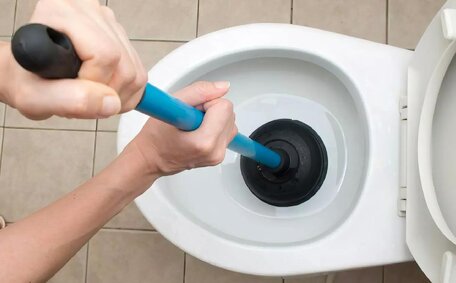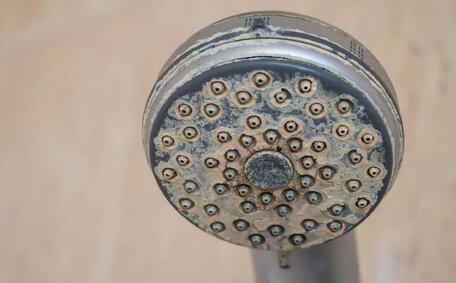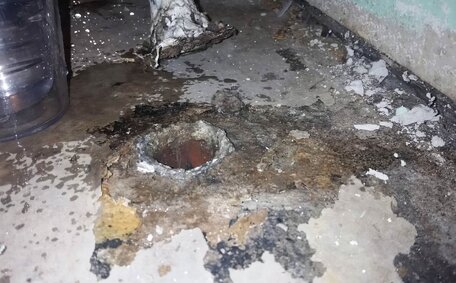Introduction: Understanding Hot Water Systems and the Risks of DIY Repairs
Hot water systems are vital in your home, supplying water for bathing, dishwashing, and laundry. Hot water systems, despite appearing simple, comprise intricate parts such as gas lines, electrical circuits, heating elements, and tanks. Mishandling these can result in severe issues.
While some homeowners opt for DIY hot water system repairs to save costs, recognising the need for professional intervention is crucial. The safety risks of DIY hot water system repairs far outweigh temporary cost savings.
DIY repairs risk electrical hazards, gas leaks, water damage, and can invalidate insurance claims or warranties.
Careful evaluation is key to your household’s safety before attempting DIY repairs.
Tampering with complex elements without proper knowledge can lead to electrocution, fires, and carbon monoxide poisoning. Unchecked water leaks commonly result in costly property damage best addressed by an expert.
The article identifies common heater issues, differentiating between DIY fixes and those requiring a professional plumber. We aim to protect your plumbing and prevent injuries or damage from risky DIY attempts.
Electrical Hazards of DIY Hot Water Repairs
The hazards DIY water heater repairs pose, particularly when meddling with the heating element, are significant and electrical in nature that could put your safety at risk. These electric water heater systems run on 220-240 volt power, expose live electrical connections, and involve components like heating elements and thermostats.
DIY electric heater repairs without proper precautions and knowledge pose a high risk of electric shock.
Turning off power at the circuit breaker doesn’t guarantee safe electrical work, so consult a professional for safe handling. The combination of water and electricity in DIY repairs is hazardous - simple mistakes can cause injury or severe property damage.
Improper repairs can result in unsafe installations, with hazards like exposed wires or damaged pressure relief valves. Such defective repairs lower electrical safety and increase fire risks over time.
Failure of the anti-scald feature due to amateur repairs can result in dangerously hot water, posing a scalding risk. Further consequences include loss of hot water, invalidated insurance policies, and compromised warranties after failed DIY repairs.
Even for skilled DIYers, distinguishing when to call a professional is essential for safely resolving serious water heater issues. If electrical issues or heating complications arise with hot water units, it becomes clearly imperative to contact professional emergency plumbers immediately.
Gas Leaks and Carbon Monoxide Poisoning
Incorrectly attempting repairs on gas hot water systems can pose serious health risks, warranting the need for a licensed plumber. Gas leaks or damage to fittings can result in disasters requiring urgent repairs; thus, a professional should repair your system to prevent explosions, fires, and carbon monoxide poisoning - an odourless, invisible threat.
Licensed plumbers’ expertise in building codes makes it safer to engage their services rather than risk gas appliance DIY repairs. We recommend professional handling because the connections involve very high pressure and demand extensive training and specialised equipment.
Attempting to relight the pilot light or meddling with the gas valve or fittings without such expertise could cause disastrous gas leaks. These not only risk explosions and fires but also the silent danger of carbon monoxide accumulation if combustion gases leak into living spaces.
Carbon monoxide irreversibly binds to blood cells, hindering oxygen transportation. As levels rise during winter months, it causes fatigue, confusion, nausea, fainting, and eventually death through asphyxiation. Unfortunately, poisoning symptoms are often confused with flu or food poisoning so people fail to evacuate in time.
Clearly, the hazards DIY repairs on gas hot water systems present require technical competence beyond most homeowners. Seeking a skilled plumber who offers qualified professional assistance promptly can mean the difference between life and death. Don’t take risks with DIY trial and error on gas appliances - call trusted plumbers immediately.
Plumbing Issues Causing Water Damage
Some homeowners undervalue the complexity of hot water system repairs by not understanding the root causes, which can result in further damage and significant water issues. Homeowners may spot leaks too late or improperly seal fittings, resulting in flooding.
Corrosion from ageing pipes or mineral buildup may gradually restrict water flow, necessitating prompt water repair. Reduced pressure may be overlooked, but it can culminate in pipes bursting due to undue strain. Likely, loose joint fittings may become more frequent, triggered by corrosion or improper installations, leaking slowly for months before detection.
' Water damage from undetected leaks creeps for long periods before catastrophic burst pipes flood entire rooms or basements.
DIY repairs often overlook failing water heater signs until the tank ruptures. By then, the devastating flow ensuing from a ruptured heater can cascade beyond control. It takes only minutes for dozens of gallons of water to wreck walls, carpets, furniture and valuables.
In essence, home repairs involving plumbing repair issues require a full understanding to prevent water damage. DIY repairs without knowledge of identifying wear from corrosion, mineral deposits or age risks worsening rather than fixing problems.
When to Call a Professional Plumber
In certain situations when hot water system issues surface, it is critical to call a professional plumber:
- Gas leaks - If you smell gas or suspect any kind of leak, evacuate immediately and call emergency plumbers. Attempting to fix gas leaks yourself risks explosions, fires, or carbon monoxide poisoning.
- Recurring electrical issues - Faulty circuits, exposed wires, improper grounding, and sparks indicate larger electrical problems beyond DIY skills. Call us to correctly diagnose and safely handle electrical faults.
- Water leaks - Whether a tiny drip or a gushing flood, any uncontrollable water leak warrants calling professionals to trace the source and prevent severe property damage.
- No hot water - If you lack hot water despite a working heater, complex underlying issues might inhibit its ability to heat water efficiently. Improper attempts could worsen your heater’s problems.
- Signs of corrosion - Flakes in water, reduced pressure, or visible rust require inspection for corrosion and replacement of aged parts. DIY mistakes can cause worse leakage.
- Odd sounds - Strange noises from heaters, like banging or hissing indicates problems needing an expert diagnosis. DIY repairs may only mask issues temporarily.
Regardless of how minor the repairs may appear, they pose serious safety risks and should be handled by qualified professionals. Trust an adept plumber at [Business Name] for proficient repairs or replacements that promptly reestablish reliable hot water and ensure safety. [Insert Call-to-Action]
How to Safely Maintain Your Hot Water System
Regular maintenance and prompt repairs can reduce future costs and extend your water heater’s lifespan. Still, significant issues should not be addressed with DIY repairs. Although professional expertise is necessary for heater repair, some maintenance tasks are safe to perform yourself:
- Inspect your system every 6 months for corrosion or leaks. Catching minor issues early can minimise the resultant repair costs and ensure your system functions optimally.
- Yearly draining is essential for removing sediment that hinders water flow in your heater. Turn off power and water supply, then attach a hose to the drain valve.
- Check that pressure relief valves aren’t dripping. Drips may indicate high temperature/pressure and require adjusting thermostat or water pressure.
- Ensure electrical connections remain intact with no damaged cords or exposed wires.
- Clear debris around outdoor units and ensure ventilation gaps meet manufacturer specs.
- Listen for odd noises like banging or hissing which can indicate problems.
Although DIY maintenance minimises risks, serious plumbing repairs need qualified plumbers. Attempting complex fixes despite inexperience risks voiding warranties or causing safety hazards.
It’s best to ensure peace of mind and safety by hiring professional assistance for your water heater repair and maintenance; contact our team today. We service all major brands and can provide prompt, affordable solutions to restore your hot water supply and ensure peace of mind.
Conclusion: Is DIY Worth the Risk?
Undertaking hot water system repairs yourself may be detrimental due to the safety risks and potential for aggravating the issue. This is precisely why DIY repairs, with risks ranging from electrocution and gas leaks to voiding warranties, can have severe consequences.
Staying safe is imperative, and though professional repair services may initially seem expensive, they can prevent higher long-term costs associated with DIY errors. Trusted local plumbers like Emu Plains Plumbing bring years of expertise to diagnose issues accurately and implement repairs safely.
Choose our professionals over DIY to prioritise your family’s safety, ensuring both comfort and security from your water heater. Don’t gamble with makeshift repairs - call the reliable pros at Emu Plains Plumbing today.
Our 24/7 emergency services and proactive maintenance plans offer peace of mind beyond what DIY can achieve.






